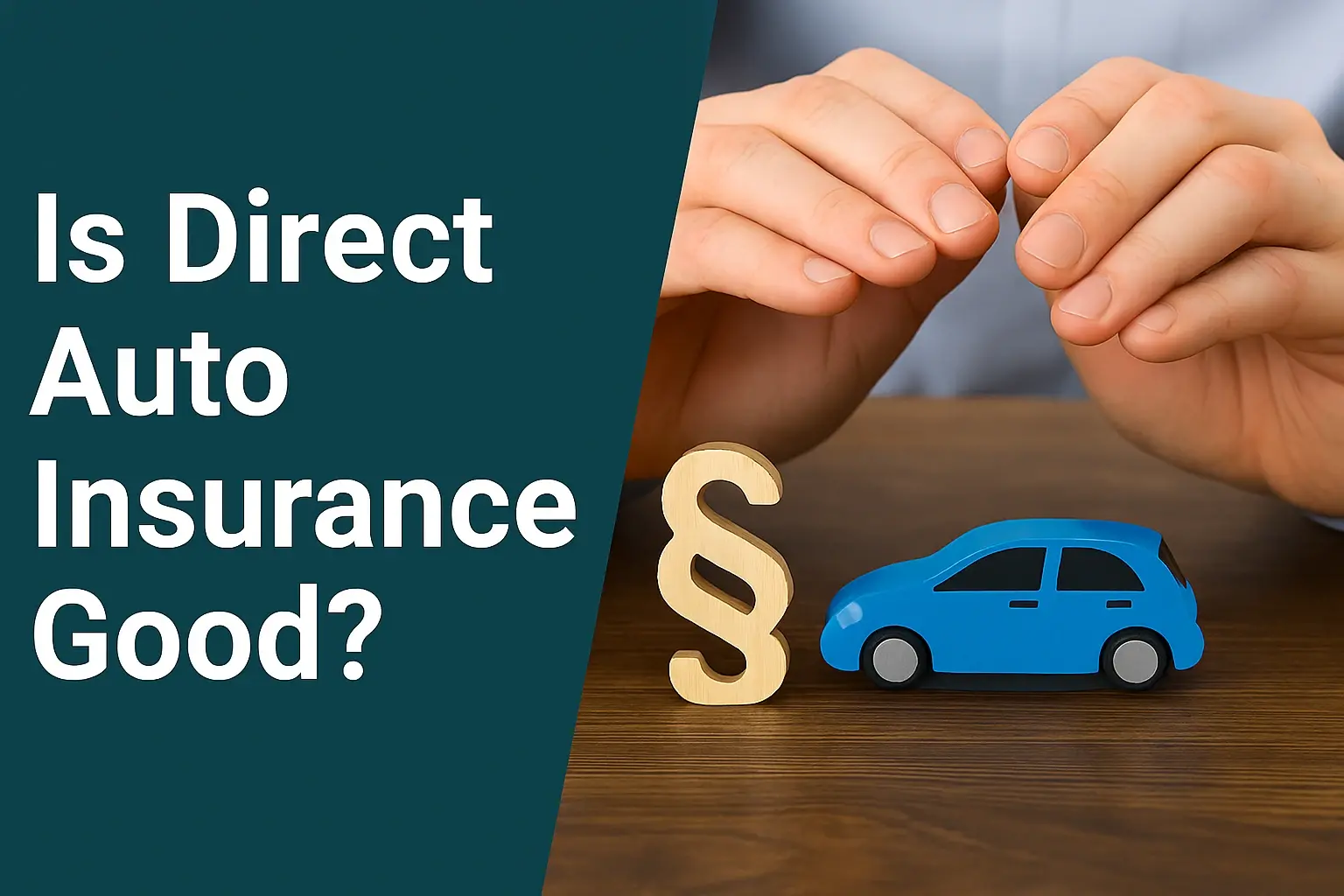05
Sep

Direct auto insurance—where drivers purchase coverage directly from an insurance provider rather than through independent agents—is increasingly popular, especially for those needing immediate coverage or struggling to qualify with traditional insurers. But is it the right choice for you? We’ve put together an in-depth review, examining its strengths, weaknesses, cost comparisons, customer service reputation, and who benefits most.
What Is Direct Auto Insurance?
Direct auto insurance lets drivers buy policies online or over the phone, bypassing insurance agents entirely. Direct Auto Insurance—one of the leading brands in this niche—was founded in 1991. They specialize in policies for high-risk drivers, including those with DUIs, lapses in coverage, or poor credit histories. Their portfolio includes liability, collision, comprehensive, uninsured motorist, medical payments, and add-ons like rental reimbursement and emergency roadside assistance. The company operates in 16 states and is a subsidiary of National General Holdings, owned by Allstate.
Auto Insurance Pros & Cons
| Pros | Cons |
|---|---|
| Online quote & purchase convenience | Higher rates for good drivers |
| Quick coverage for high-risk drivers | Limited coverage customization |
| SR-22 filing for drivers with violations | Limited expert advice, no agent support |
| Multiple digital payment options | Mixed customer service ratings |
| Discounts for military, multi-vehicle, safe driving, and prior coverage | Coverage only in select states |
Auto Insurance Pricing & Discounts
Direct Auto is known for higher-than-average premiums—especially for drivers with clean records. Their average annual full coverage cost is between $2,452 and $3,941, about 29% above the national average. Minimum coverage can average $988–$1,042, which is roughly 55% higher than that of competitors.
Discount programs offer real savings, with up to 25% off for prior insurance, military service, multi-car, autopay, and paperless policies. These discounts are particularly advantageous for high-risk drivers and multi-vehicle households.
Coverage Options & Add-Ons
- Liability: Bodily injury and property damage as required by the state.
- Collision & Comprehensive: Protects against accidents, theft, and natural disasters.
- SR-22 & DUI Insurance: Specialized coverage for drivers with violations.
- Uninsured Motorist: Coverage if the other party is not insured.
- Medical Payments & PIP: Optional, covers medical expenses post-accident.
- Add-Ons: Emergency roadside, rental reimbursement, accidental death, and Mexico travel coverage.
Customer Experience: Service & Satisfaction
Direct Auto offers 24/7 claim filing online, by phone, or mobile app. Some customers appreciate the easy, fast process, while others cite issues like slow claim settlements and app technical problems. BBB reviews average just 1.06 stars out of 5, with frequent complaints about customer support and claims processing. NAIC data shows Direct Auto receives above-average complaints, which is common for insurers serving high-risk customers.
Mobile app ratings range from 2.4 (iOS) to 3.8 (Android), often noting login and payment glitches.
Who Should Consider Direct Auto Insurance?
- Drivers are considered “high-risk” due to traffic violations, accidents, or poor credit.
- Those needing fast, basic coverage or SR-22 filing to restore driving privileges.
- Military members in AL, FL, and LA who qualify for discounts.
- Multi-vehicle families want streamlined, digital policy management.
Those with clean records, good credit scores, or complex coverage needs (e.g., new cars, property bundling) may find lower prices and better personalized service with other providers or independent agents.
Is Direct Auto Insurance Right For You?
Direct Auto Insurance stands out for its accessibility to high-risk drivers, flexible payment options, and a wide range of digital discounts. The trade-off is higher-than-average premiums and customer service that may fall short of expectations. If convenience, speed, and basic coverage are priorities—and traditional companies won’t insure you—it can be a solid choice. However, for those seeking personalized advice, competitive pricing, and advanced coverage options, comparing quotes from agent-based insurers is recommended.
Always review your coverage needs carefully, check for gaps, and seek multiple quotes before committing—especially if you qualify for competitive rates elsewhere.
Frequently Asked Questions
- Is direct auto insurance cheaper?
Often cheaper for high-risk profiles, but pricier than average for most drivers. - How do I file a claim?
Online, by phone, or via mobile app, with 24/7 claim support. - Can I bundle policies?
Yes, multi-car and multi-policy discounts are available in some states. - Does it offer financial advice?
No, direct insurers do not provide financial counseling—you're responsible for reviewing and managing your policy.
Conclusion
Direct auto insurance is a valuable solution for many, especially those who require quick approval or have been traditionally rejected. Take advantage of online discounts, but pay close attention to service reviews and possible premium increases. For personalized coverage and better rates, consult an independent agent and compare multiple insurers.




